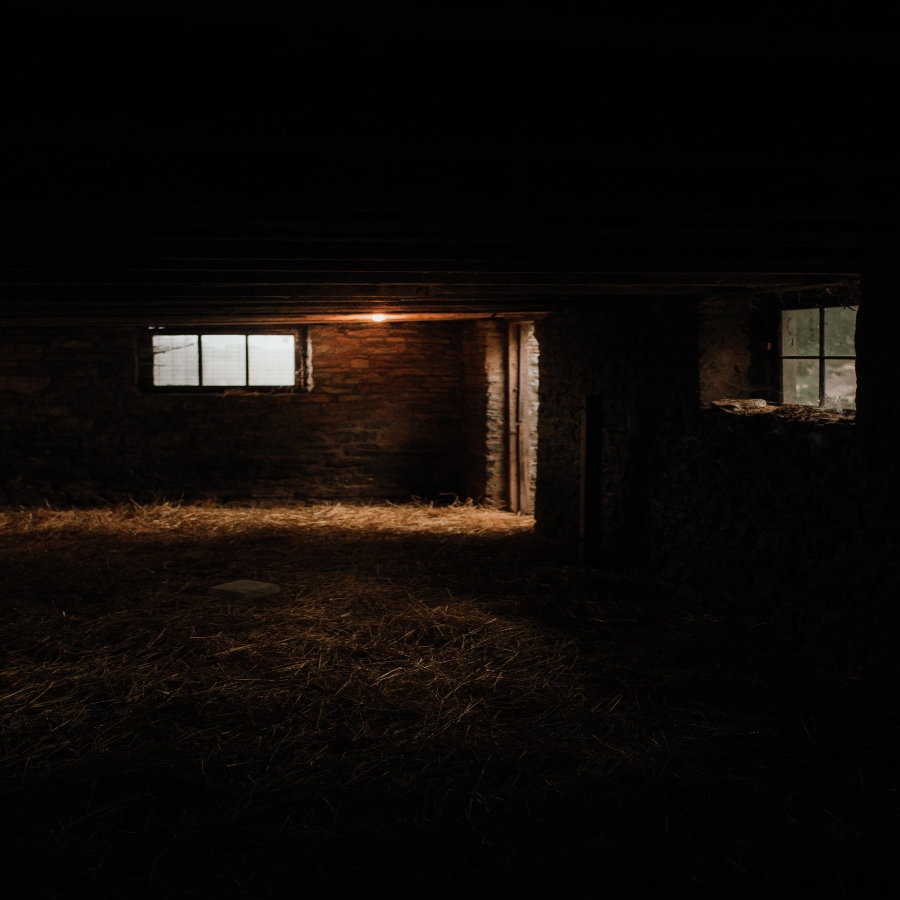There was a lot of dust on them mens. Me, keepin’ off the wooden sidewalk while keeping an eye, a close eye, mind, on them rowdy boys of Mist’ Showet, all I could see was dusty mens. They wasn’t wearin’ more than rags over they parts, and some not even that. In my head I was studying—to see could I get a half-spoiled bit of sugar to bring back to my pallet. Could maybe the fella what totes barrel for Boss Kerman in the store see somewhat had-a fell on the floor and sweep it up for “out back”. Could maybe put some in a little in a sack I could hide in my dress front. So I was thinkin’ about could I make a little sugar tit for my twins I couldn’t feed when he spat right in front of me, so’s I could see he was there.
The coffle was stopped in the road, driver muttering with the dark ugly over one man on his knees on that road. He swinging his whip on that man, the blood running over his back making streaks in the dust from the quarry where he worked them.
And the spit, landing at my feet is all made me look.
And then I had to stop. I dropped to the dirt, not looking for more than a breath’s time, then reaching for my behind, to worry and scratch like I had some kind of flea on me. I knew it was him, sent to the quarry so he and I would never so much as breathe air in the same place. All cause Master Showet wanted what he wanted.
Mama told me ‘fore I could smell myself good, don’t let no white folks see what you love.
But I thought the wind in the trees stopped when Basie ran by that day. I’d been seeing him round the place my whole life, and he was just one more rusty-behind boy driving hogs and fetchin’ for the stable man. But that day when he came racing round that corner and shouting hog runnin’ move the chirrens, I took two babies by the arms and pushed them into the door of the nearest cabin, then looked and felt myself. Under my arms started to prickle, and my hands went up there. I watched his legs flash by, saw how he fell on that old hog and threw rope round one leg and its neck, so’s it had to follow where he took it or stop its own breath.
And after, anytime, just seeing how Basie could shout those animals to do anything he wanted, made my hands fly up under my arms, made me wish I was a little cow too, or a hog so he could fall on me. And surely Mama called me heifer then. But I was seeing nothin’ and no one but Basie.
I sat in that street. Just scratching like I had nothin’ but fleas, so’s I could worry my dress up to my knees, let him see me, see I knew him, remember how on that one Sunday, sittin’ on the cabin stoop and spittin’ watermelon seeds, I was laughin’ cause I was winnin’, and his fingers got near to my knees, then driver come up with some other hands. Good thing, he say, Master done told me keep my eyes on you, gal.
Boy. Now he talking to Basie and got him pulled up, Basie shirt twisted round his neck, he almost on tippy toes, Boy, I know that stable need you, but we done just found out Boss Nolmann there need you down his quarry more.
And like that Basie was gone.
Basie’s Mama never so much as look at me again, ‘cause all the hands knew Master had to sell that big strong boy was gon’ be a main-hand cause him and me was gettin’ too friendly. And Master had me to the backfield, to the curehouse that night, and load of nights after, and I had them babies done got sold soon as they weaned, a boy, another boy, and one I didn’t know what it was they took it from me so fast to feed on another place, or maybe just drowned it if it look too white. And I makes all my milk now for the babies in the big house.
But I got mine back. I sat in that street just like a heifer and worried that flea ain’t really a flea and drug my dress up so Basie could see I knew he was in that quarry coffle, and that I knew how he had been smiling and spittin’ seeds, and they hadn’t killed him yet. And that he knew I loved him.

